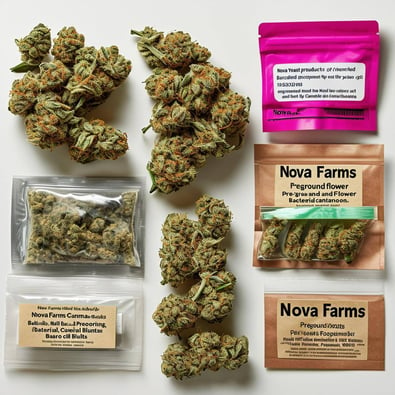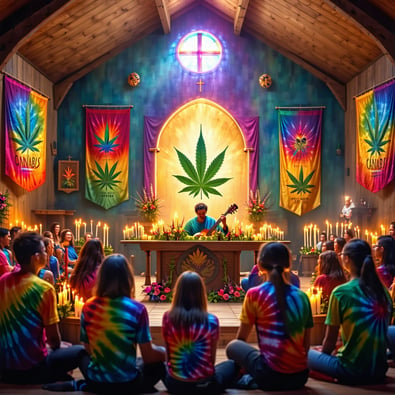Decades after pioneering prescription heroin and safe injection sites, Switzerland is now experimenting with decriminalizing recreational cannabis.
It’s being done in a very Swiss way, according to addiction experts: taking things slow and steady to see how the population responds.
Currently, cannabis is legal for medical use in the country, but only in extreme cases, such as pain relief for cancer patients.
In 2021, around 70 percent of the population supported liberalising cannabis laws, up from 58 percent three years earlier, according to the Swiss health ministry.
The federal government has now authorised trials to take place over the coming decade to experiment with decriminalising recreational cannabis, taking small steps like it did for four years before introducing prescribed heroin in the 1990s.
"Switzerland has gone in a different direction [than a more direct route to legalisation, as in some US states, Canada and Uruguay], and of course I prefer that as a scientist because the idea would be that studies be done first to get certain results, and design specific regulatory models based on these results," said Marc Walter, Professor of Psychiatry at the University of Basel.
'Pure and organic': Cannabis sales begin in Basel
Some 400 participants aged 18 to 76 have been selected among thousands of applicants for the first trial in the city of Basel. They can now purchase cannabis in nine pharmacies taking part in the two-year pilot.
Other major Swiss cities, including Zurich, Geneva and Lausanne, are planning to launch similar trials.
"People are happy, since for the first time they can buy it legally," said Lucas Meister, a pharmacist at one of the participating pharmacies.
If prices are too low, people would try to resell the product, and if they are too high, they would turn to the black market.
Marc Brüngger
Head of Innovation and Regulation, Pure Production
Paul, a 42-year-old local resident who asked that his last name not be published, is one of the participants.
He said he had been buying his drug of choice on the street from "weird people or criminals" for the past 25 years.
"This is 1,000 times better," he said.
He explained that the move allows him to finally know with certainty that he is getting "pure and organic cannabis" which is grown in Switzerland and whose quality is guaranteed by Swiss authorities.
"I want to consume cannabis, not chemicals made in China," he said, referring to synthetic cannabinoids - laboratory-made molecules that mimic the effect of tetrahydrocannabinol (THC), the component of cannabis that gets users high.
The colourful, five-gramme packs contain various dried cannabis flowers and hashish-based products with THC levels ranging from 4.5 to 20 per cent.
The Swiss company producing cannabis for the Basel trial, Pure Production, deliberatedly chose the price range from €8.70 to €13 per gramme to be in line with the black market.
"If prices are too low, people would try to resell the product, and if they are too high, they would turn to the black market," said Marc Brüngger, Head of Innovation and Regulation at Pure Production.
Swiss authorities and experts working on the say the pilot program say it aims to study the effects of regulated cannabis sale on mental health and on consumption habits, not to encourage consumption.
"We have to get out of the illicit cannabis framework, but ensure strict regulation," said Barbara Broers, vice president of a federal commission on issues surrounding addiction.
"It is important that people have access to controlled and regulated products, but we are proposing to ban advertising and to have plain packaging, as with cigarettes in some countries," she added.
For more Cannabis News like this, circle back to 420intel.com!
420 Intel News | 420 Advertising | Cannabis Business News | Medical Marijuana News | Recreational Marijuana News




